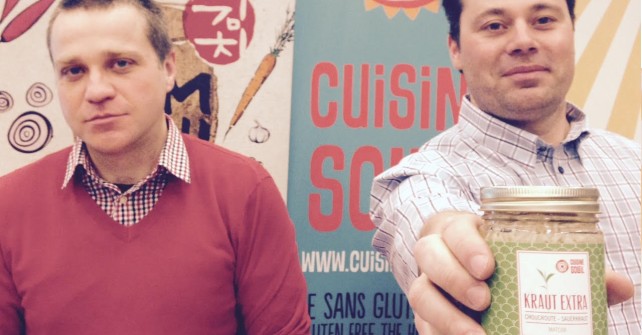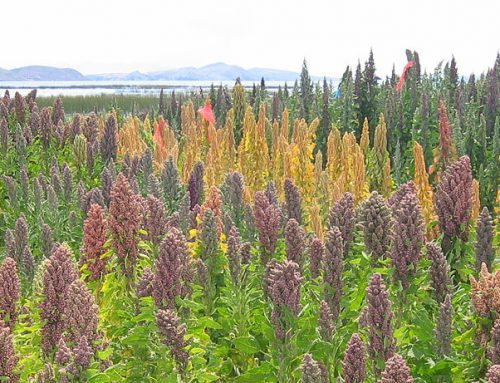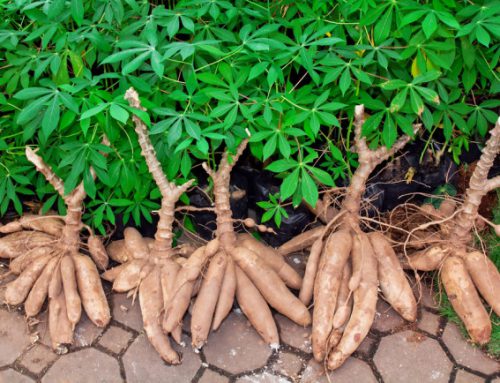Owner-founder-executive chef of Green Tables Food, Josh was convinced by Marc Paquin to become Cuisine Soleil’s Kimchi and Kraut Extra’s manufacturer. His secret resides in a few words : quality, sustainability, flavor, health, innovation and interest.
How did you meet Marc?
“In September 2014, he tried to call me but I was unable to take his call. He kept calling over and over again; I thought he wanted to sell me something!”
But he wasn’t?
“It turns out that he tasted our Kimchi during one of his trips to Toronto, and he wanted me to come up with a bunch of exclusive lactofermented, vegan, gluten free and organic recipes for Cuisine Soleil”
But how come a little fellow from Toronto became a Kimchi expert?
“I grew up in a neighborhood where I had this Korean friend. We would sneak into his parent’s house to eat his mom’s Kimchi when they weren’t watching. As I grew up, I bugged this lady to teach me, but she didn’t until I was 20!”
What criterias come into play when you start inventing a recipe?
“First would be the quality of the ingredients, quality ingredients simply taste good. Sustainability comes second, but both of them are heavily linked, because the best ingredients are organic: respect mother earth and it will feed you. Third, you have to obtain a more than satisfying flavor when you mix those ingredients: the whole set has to taste good. I like to make the food that enables people to heal themselves, so fourth would naturally be the impact on the consumer’s health: how can you take pleasure in eating something you know will slowly kill you? I also like to experiment, to discover new flavors, so innovation would come fifth. And in the sixth place, you don’t want to make a recipe just for you. If you want to sell it, you have to suscitate interest, play with trendy ingredients, work on your packaging…
And how do you come up with such ingredients in the first place?
We get our vegetables from local and organic family owned farms. They are the artisans of a sustainable agriculture. We get our supplies directly from those farmers so they get all the revenue. It could be called real fair trade, because it helps us too! We get stable prices all year round, there is no fluctuation, nobody speculates on that relationship: it is a sustainable way to bypass the traditional industry and the perfect illustration would be that most of our supplies come from the Mennonite communities, and they still use oxen and horses in their fields!




